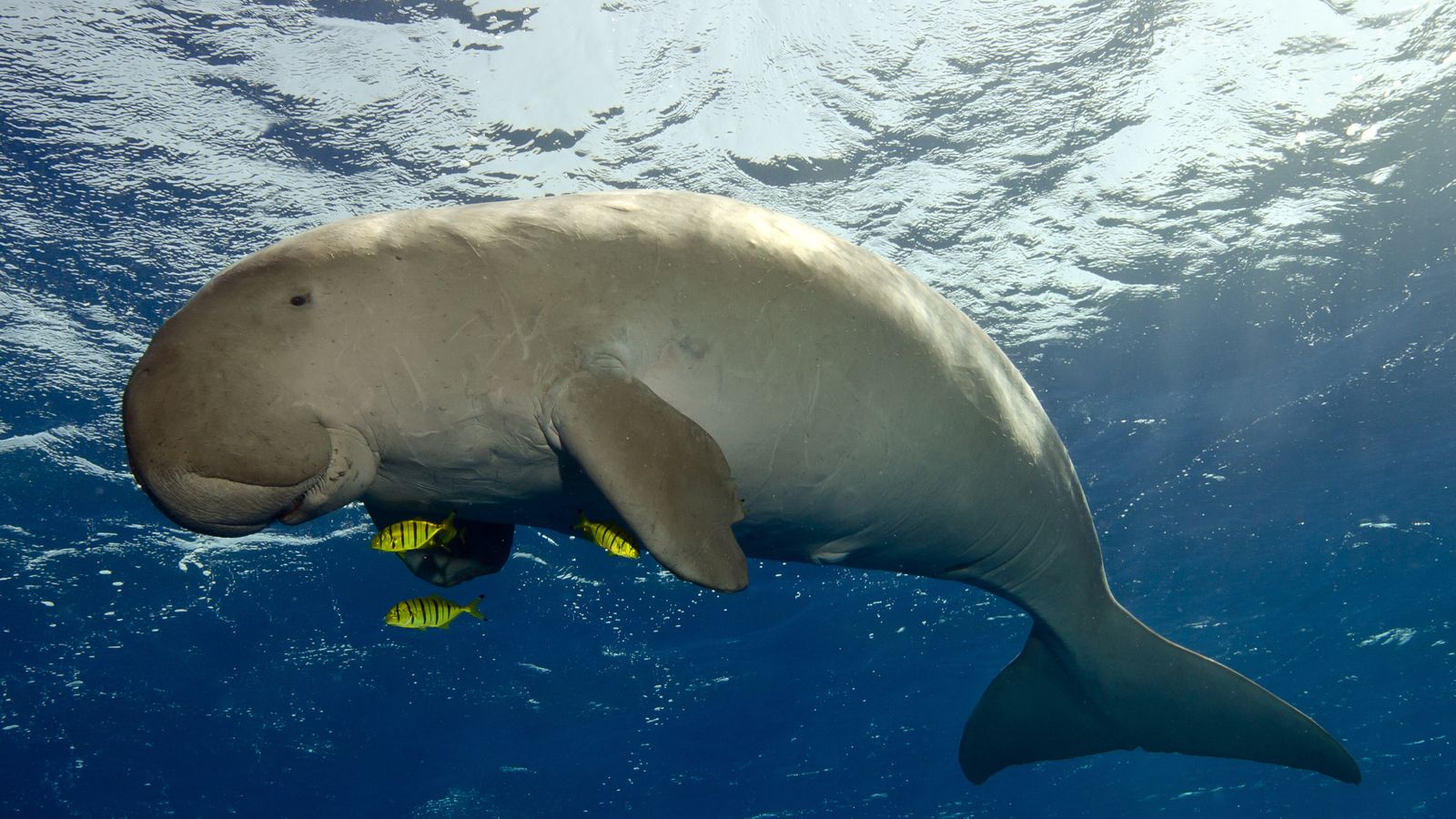The dugong has been declared functionally extinct in Chinese waters.
Fishing and ship strikes have caused a rapid decline of the “sea cows” since the 1970s, according to research by the Zoological Society of London (ZSL) and the Chinese Academy of Sciences.
There has been no evidence of their presence in China since 2008, the teams found.
Their research said “this is the first functional extinction of a large mammal in China’s coastal waters”.
The marine mammal, whose diet is highly dependent on seagrass, has been classified as a Grade 1 National Key Protected Animal since 1998 by China’s State Council.
The report said their marine habitats have been rapidly degraded by humans and although restoration and recovery efforts are a key priority in China they take “time that dugongs may no longer have”.
Dugongs are found in coastal waters from East Africa to Vanuatu and as far north as Japan.
Minions: The Rise Of Gru gets alternative ending in China in latest film censorship
Receding water levels of Yangtze in China reveal three Buddhist statues as heatwave continues
China announces new military drills as more US politicians visit Taiwan
The gentle animals are listed as vulnerable by the International Union for Conservation of Nature.
Their appearance is thought to have inspired ancient stories of mermaids and sirens.
Professor Samuel Turvey of ZSL’s Institute of Zoology, a co-author of the study, said the likely disappearance of dugongs in China was a devastating loss.
“Their absence will not only have a knock-on effect on ecosystem function, but also serves as a wake-up call – a sobering reminder that extinctions can occur before effective conservation actions are developed,” he said.
A team of international scientists conducted interviews in 66 fishing communities across four Chinese provinces along the coastal region of the South China Sea.
The authors said they would welcome any evidence dugongs might still exist in China.
They recommended the species’ regional status be reassessed as Critically Endangered (Possibly Extinct).






















